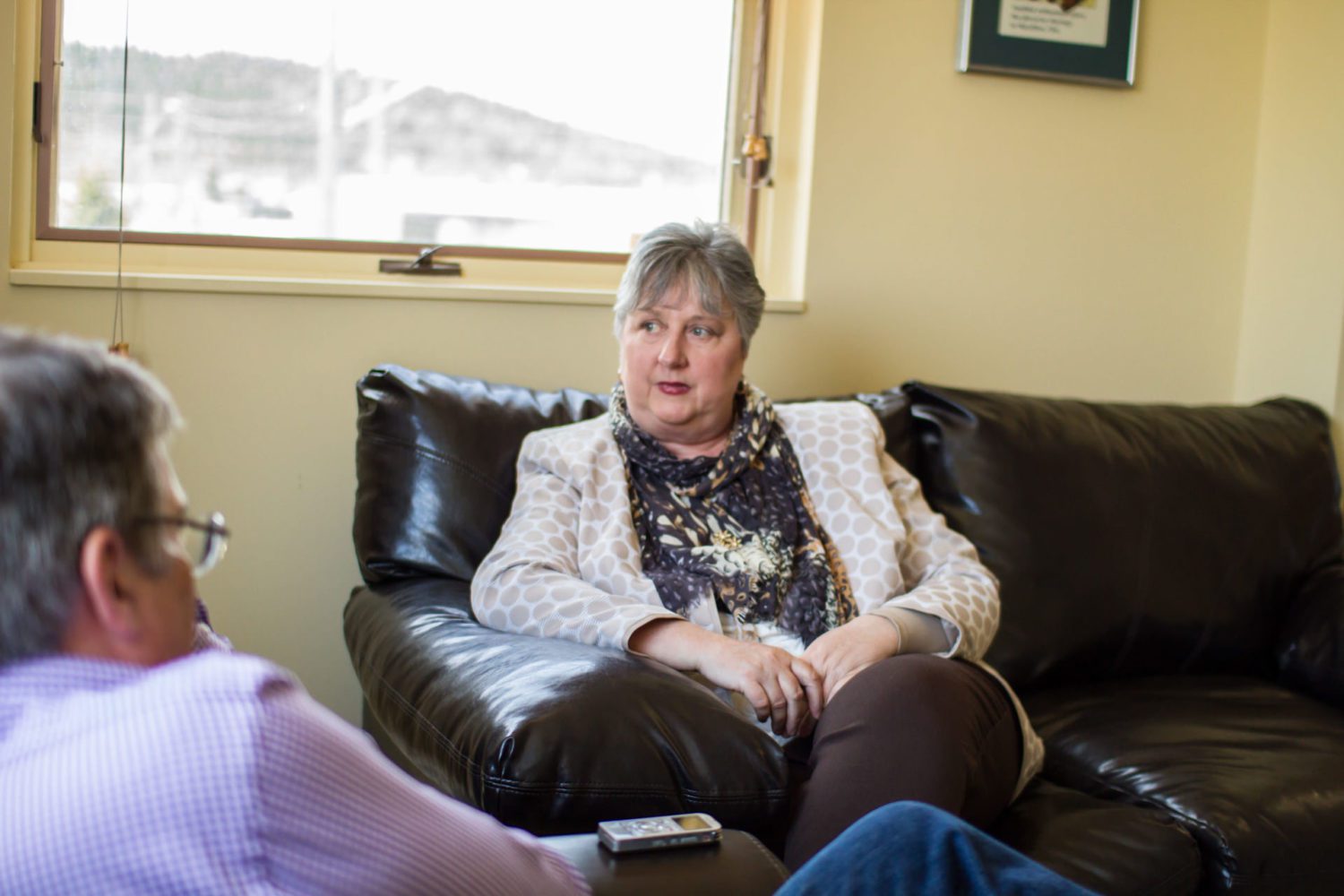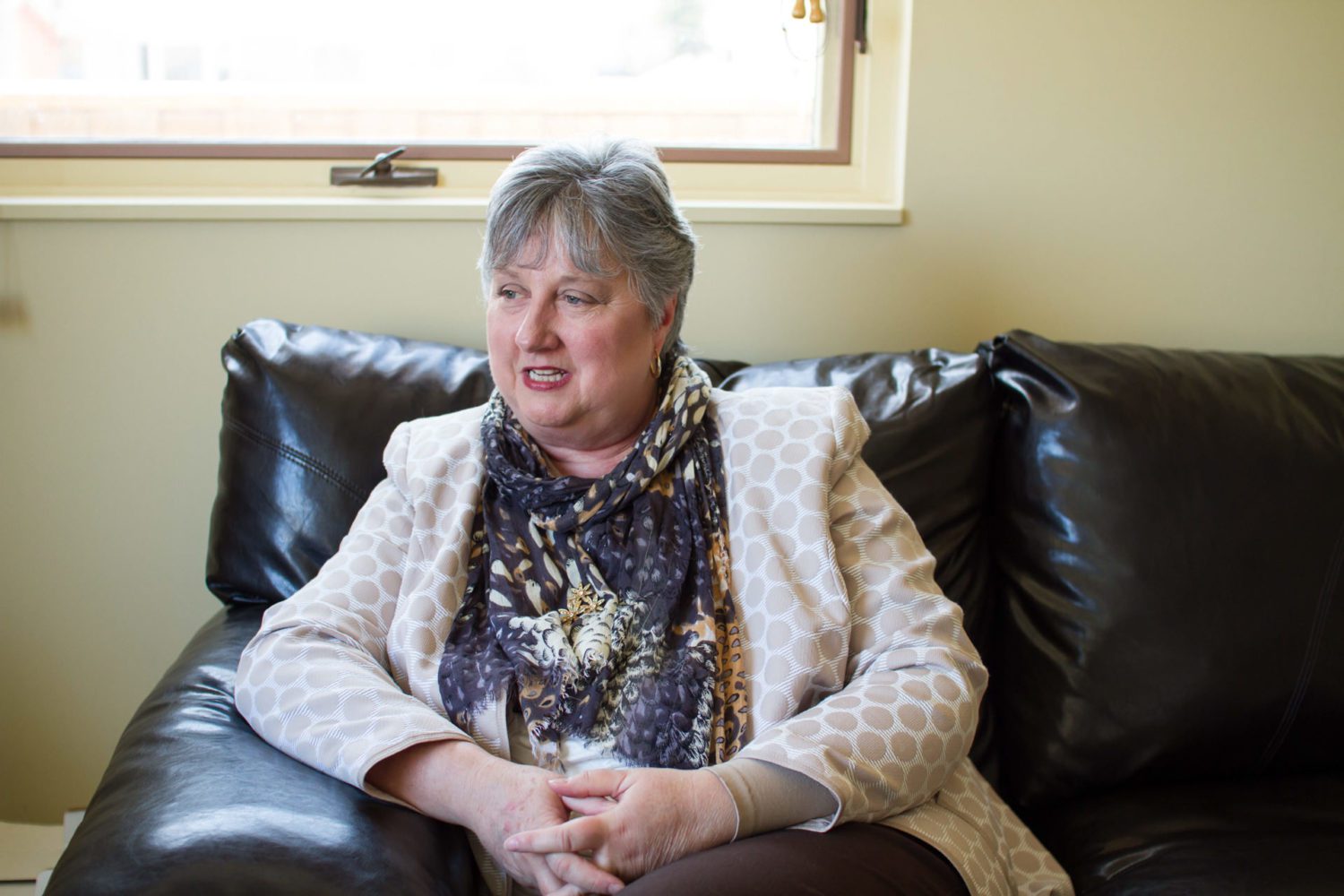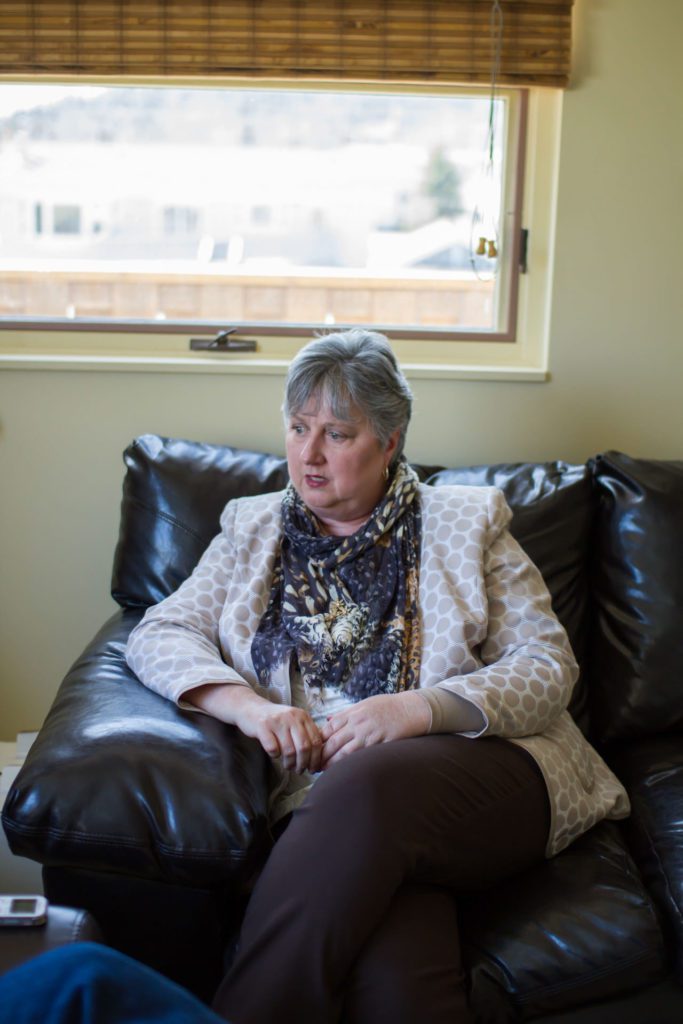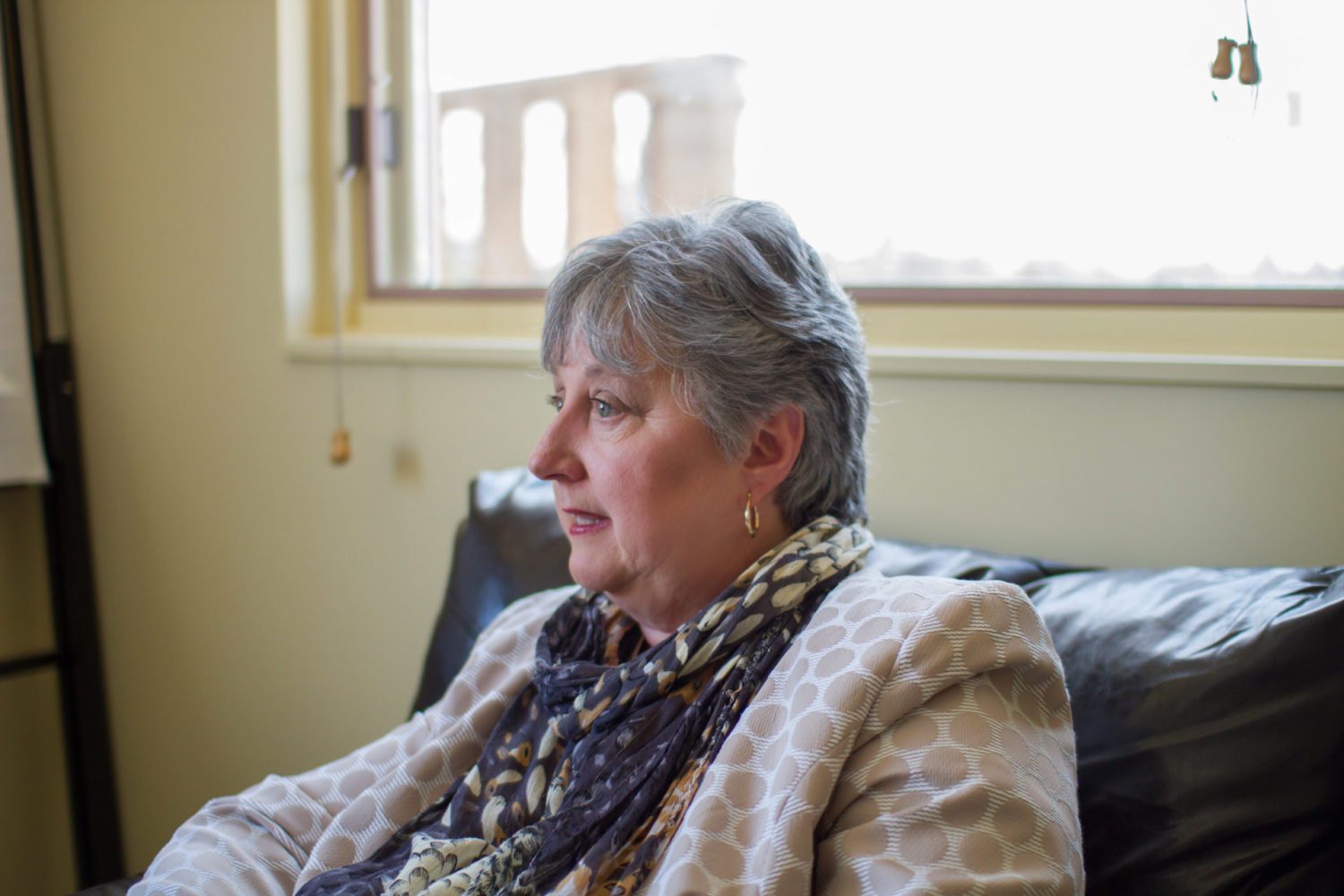Joanne is the executive director of a Family Health Team in a small community in northern Ontario. When she was diagnosed with breast cancer three years ago, she had to drive more than three hours for tests and treatment. She talks about how fellow patients support each other, the financial burden of cancer and pharmaceuticals, and the anxiety of waiting for a diagnosis.
“Six years ago, I was diagnosed with stage 3 breast cancer and I had a mastectomy. This was followed by radiation therapy and 15 months of intravenous chemotherapy.”
“The radiation treatments were really difficult for my husband and I because they were in Thunder Bay, which is 3.5 hours away. We are animal lovers and had six rescue animals at home, so he wasn’t able to be with me. For the five weeks of treatment I stayed for free at a place called Tamarack House, which is a home away from home for patients receiving chemotherapy or radiation treatment.”
“Thirteen people were there at the same time, with varying degrees of cancer. We had our own bedroom and bathroom but we were encouraged to come out and mingle if we felt well enough. I got to know one woman who also had a mastectomy and was on the same chemotherapy and radiation treatment cycles. She was very, very fearful about what life was going to hold after her treatment was done. So, we each become a support for the other.”
“Some people had survived something much worse than what I had, and they became an inspiration.”
When you are first faced with cancer, you don’t think that you are going to survive. But when you find out what other people have gone through, you think, ‘Oh my gosh, look what they have survived!’
“It gives you the resolve to say to yourself, ‘Well, this is not so bad. I can deal with this!’ Some of us continue to keep in touch. Four of the ladies have passed on from their cancer, which is very sad.”

“I had to schedule numerous tests in Thunder Bay. I might go up one day for the CT scan, I’d come home, and two days later they’d ask me to go back for a bone scan. So, I am taking my 4-wheel drive truck, which in the middle of the winter is the safest way to travel. But it’s also expensive on gas, so it’s a $120 gas bill, it’s $120 a night for accommodation, sometimes if my husband needs to be with me, it’s a kennel fee for our pets. All of those things add up. There are many, many people who just can’t afford it.”
“Cancer is a financial burden on everybody. Any costs incurred for travelling to Thunder Bay for all of the tests I needed, and the hotels in relation to that, were out of pocket expenses. We were fortunate we had some savings, but I kept thinking about all of the people who didn’t have savings. How were they going to pay?”
“Most people think we have a health care system where everything is funded. It’s not. The biggest concern that we should have about our system is pharmaceuticals. Some patients cannot afford the drugs that they need to survive! The invoice for anti-nausea drugs prior to the chemo was $600 every time I went to get them. Another drug I took, an injection that I had to give myself to bring my white blood cell count up – it cost a thousand dollars for one vial and I was told I could need 12 of them. I mentioned that to the social worker at the cancer centre. She contacted the pharmaceutical company on my behalf and they agreed to give six vials to me at no charge. Fortunately, my white blood cell count remained stable and I didn’t need more than that. Otherwise, I would have had to pay the remaining $6,000 myself!”
When people are told these are the drugs that they need, and they have no benefit plan, then they face a choice. Do I put food on the table or do I buy this drug so I can live? And that is a real fear.
“The last thing you need when you have cancer, because you are terrified that you are going to die, is to be worried about your finances. I’ve worked hard all my life, and my first thought was, ‘Are we going to have to sell our home, are we going to have to go into an apartment, do we have to get rid of our animals?’ Fortunately, my parents, sister and brother sent money to help pay for some of the drugs and hotel costs. Friends and community members sent gas cards and gift baskets – people rallied around us and it felt like a huge community blanket of warmth and caring.”

“My husband is a musician and has played in a band since he was 14 years old. They are a great bunch of guys and we got talking one night at practice, and every single person in the band said they were affected by someone who had cancer. So we decided to do a concert and fundraise for our local chemotherapy department and for Tamarack House.”
“We started it five years ago and the concert was sold out within two days. This was our fifth year and we raised over $15,000.”
 “My father in law who passed away two years ago was on dialysis for the last year and a half of his life. At first, that meant he had to be in Thunder Bay. He slowly deteriorated and went downhill. He was away from his community, away from his family. Eventually, they put him on another form of dialysis that could be done in the hospital here in Marathon. Our hospital went to great lengths to train its nursing staff to be able to administer the dialysis so he could be transferred to our hospital.”
“My father in law who passed away two years ago was on dialysis for the last year and a half of his life. At first, that meant he had to be in Thunder Bay. He slowly deteriorated and went downhill. He was away from his community, away from his family. Eventually, they put him on another form of dialysis that could be done in the hospital here in Marathon. Our hospital went to great lengths to train its nursing staff to be able to administer the dialysis so he could be transferred to our hospital.”
“There are a small number of patients who won’t go to Thunder Bay in the first place and won’t get the dialysis treatment. They will say, ‘That’s it for me. I am not moving out of this community.’”
“Once he was in the Marathon Hospital, we were able to be with him every day. His friends that he had for a lifetime got to visit him. I would often be walking down the hallway in the hospital and I could hear him laughing and I knew somebody was in visiting him. That lifted his spirits. It was really easy for my husband and I to have supper with him. They have a great cafeteria there, so we would sit and have a meal with him. We could bring the dogs in so he could have visits with his ‘fur-grandchildren’ as he liked to call them. All of those things made a difference for him personally. I think he would have been gone a lot sooner if that option had not been made available to him.”

“My health care in general was exemplary. My one observation would be that some effort needs to be put into making access a little bit more seamless for people who have a potentially life threatening disease. I had a mammogram that raised the suspicion of cancer. I was advised by Thunder Bay Regional that it would be six weeks before I could get a core biopsy of the breast. The doctor who was taking care of me thought that I might have inflammatory breast cancer. When I read up on this I realized that this kind of breast cancer can be really aggressive, and I was really worried that if I wasn’t treated quickly I’d be dead soon. It turns out I didn’t have inflammatory breast cancer, but my biopsy appointment was six weeks away, which was agonizing.”
What is up with having someone who has been given a diagnosis of possible breast cancer having to wait six weeks for a biopsy?
“I was told the reason was that most of their regular radiologists were on holiday. Fortunately, they ended up bringing in a locum and I was able to get the biopsy within two weeks. Access to tests should not be impeded at certain times of the year because certain professionals are on vacation.”


The comments section is closed.